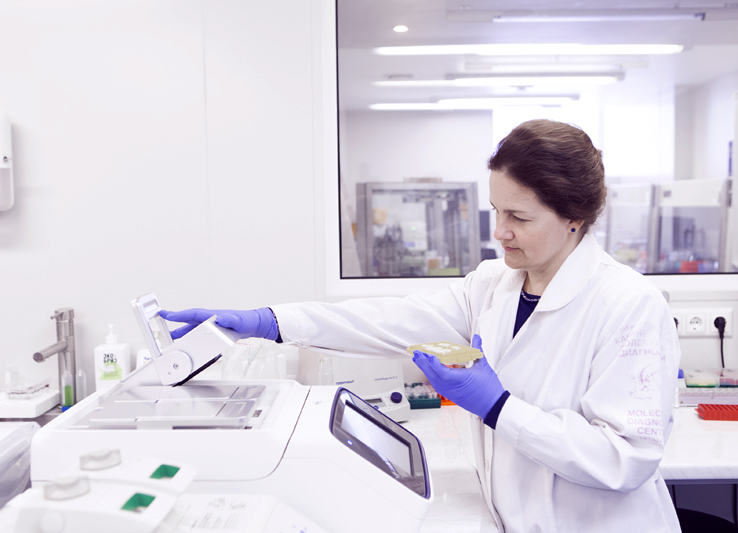FSBI «National Medical
Research Center for Obstetrics, Gynecology
and Perinatology named after Academician V.I.Kulakov»
Ministry of Health of the Russian Federation
Laboratory of Molecular Genetic Methods
Laboratory of Molecular Genetic Methods
HEAD OF LABORATORY
Anderey Donnikov, Ph.D.
E-mail: a_donnikov@oparina4.ru
The Laboratory was founded in 2008. In 2016 it was united with the Laboratory of Clinical Genetics.
The Laboratory uses molecular genetic methods of study of DNA and RNA to solve the acute tasks of obstetrics, gynecology, reproductive medicine and neonatology, including infections, estimation of gene activity of immune, endocrine and other systems. It is equipped with the most modern productive equipment, including the devices for whole genome study.

FOCUS AREA
- Qualitative analysis of the vaginal biocenosis - a new approach to detection of dysbiotic conditions in women.
- Molecular diagnostics providing qualitative and quantitative assessment of microorganisms of the urogenital tract biota, allowing to obtain a more complete and individual information about the patient's condition in combination with the traditional methods of laboratory diagnostics.
- Human genetics
- cytogenetic and molecular cytogenetic examination
- whole genome analysis
- diagnosis of monogenic diseases
- LA typing
- Identification of HLA class II alleles (genes DRB1, DQA1, DQB1) in infertile couples and in cases of habitual miscarriage
- risk of hemostasis disorders
- genetic predisposition to hypertension
- genetics of reproductive disorders
- Kinship determination
- Diagnosis of infectious diseases
- bacterial
- viral
- fungal
- Examination of the microflora of urogenital tracts of men and women
- Detection of fetal sex and Rh-factor in the early stages of pregnancy
RESEARCH
Laboratory specialists are involved in searching for clinically significant associations of various genome features with reproductive disorders. The studies include expression of a number of genes in various pathological conditions, the reaction of cells of vaginal discharge in various inflammatory diseases by gene expression in a number of cytokines. There is a different spectrum of cytokine gene expression depending on the genesis of the disease, which indicates the activation of various immunological mechanisms and can be used to diagnose inflammatory diseases of the lower urogenital tract.
The Laboratory develops new methods of non-invasive prenatal and neonatal diagnostics of hereditary diseases.





